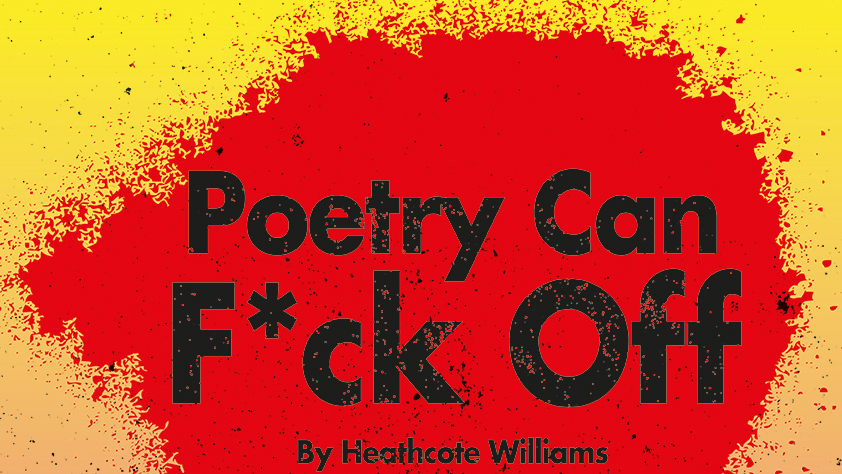For anyone who ever said that poetry is boring, Braintree have brought the perfect rebuttal back to the Fringe. Poetry Can F*ck Off is a galvanizing performance that celebrates poetry’s power to move, delight, and challenge. It reels out a comprehensive history of poets who have changed the world by stirring people into action.
People wanting to tear down the literary Canon will be delighted. Spenser, Blake, and Shelley are quoted next to Pussy Riot, Aretha Franklin, and Helen Reddy. Interweaved with Heathcote Williams’ epic poem and an original music score by Dr Blue, these poets have been ravelled into a revolutionary medley that shows off verse in its many guises.
The lines are blurred between music and poetry. The lyrics from “R-E-S-P-E-C-T” are recited rather than sung to show off the potent meaning behind the words. Sameena Zehra, Anya Tate-Manning, and James Nokise repeat lines together throughout the performance, and almost resemble backing singers. The repetitive chants sound like a protest song on a march, showing poetry’s place in the music that has accompanied so many struggles. The moment when Zehra breaks away to sing Tracy Chapman’s “Revolution” is a magical one. It reminds us of the pull that words can have.
For literature nerds, the piece is a fantastic exercise in intertextuality. A constellation of quotes has been arranged to give each other new meaning. A lot of ground is covered as the group hurtle through history, covering events as far apart as the Easter Rising and the Arab Spring.
Poetry Can F*ck Off is a refreshing alternative to the stiff stereotype that some give spoken word poetry. It is loud whilst poised and carefully delivered with real feeling behind the words. The poets are totally at ease onstage, tripping up and recovering with a smile that makes even the mistakes endearing. The performance is fun and not so sincere that it sounds like a manifesto. It is more a celebration of poetry and people. An intimacy exists between the stage and the audience, which highlights the show’s message that poetry has always been the tool of the many.
